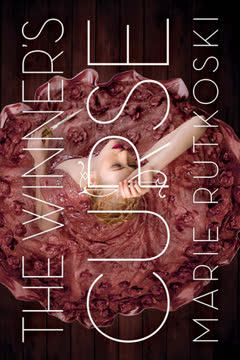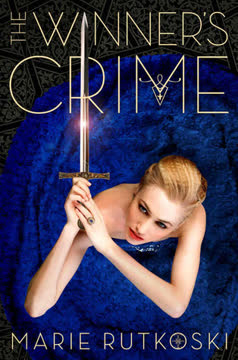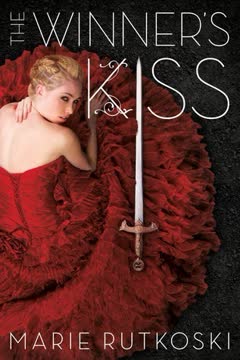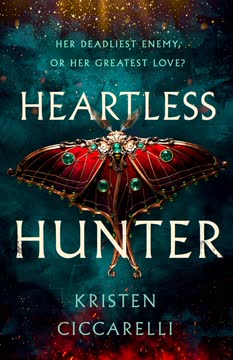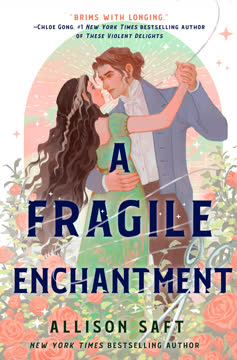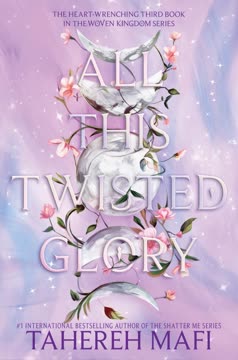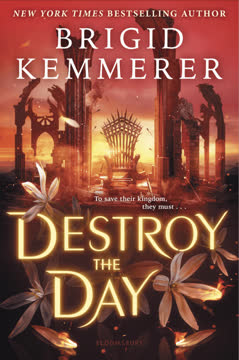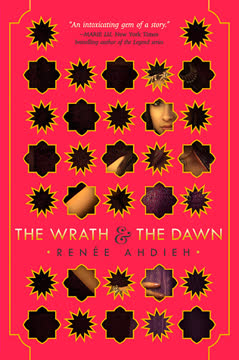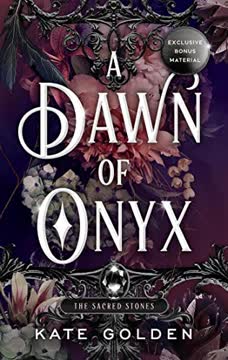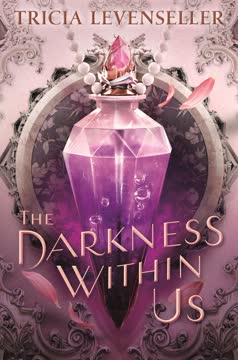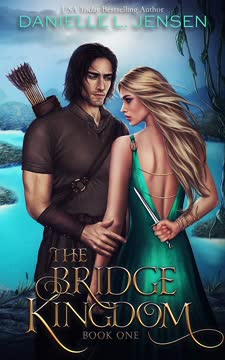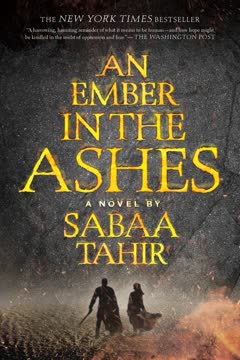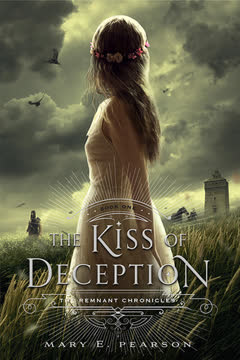Plot Summary
Games and Glass Lies
Kestrel, the general's daughter, navigates the bustling market, outwitting sailors in gambling and exposing a Herrani jewelry seller's lie to protect her from punishment. Her compassion is masked by her imperious Valorian demeanor. With her friend Jess, Kestrel stumbles into the slave auction, where the air is thick with tension and the weight of Valorian conquest. The world is sharply divided: Valorians, the conquerors, and Herrani, the conquered and enslaved. Kestrel's actions reveal her discomfort with her society's cruelty, even as she upholds its customs. The market's games and the glass earrings become symbols of the blurred lines between truth and deception, foreshadowing the deeper games of power, love, and betrayal that will define her fate.
The Auction's High Price
At the slave auction, Kestrel is drawn to a defiant young Herrani slave, Arin. Against her better judgment, she bids an exorbitant sum, winning him at a price that shocks the crowd and herself. The Winner's Curse is invoked: to win is to pay more than something's worth, and Kestrel's victory is laced with dread. Arin's silent contempt and the crowd's whispers mark the beginning of a relationship fraught with tension and unspoken consequences. Kestrel's impulsive act sets in motion a chain of events that will upend her world, as the cost of her choice becomes far greater than she could have imagined.
A Slave Named Arin
Arin is brought to Kestrel's home, his presence unsettling the household. Kestrel's father, General Trajan, is displeased by her purchase, and the household's routines are disrupted. Arin is assigned to the forge, his skills as a blacksmith put to use, but his true nature remains hidden. The dynamic between Kestrel and Arin is tense; he is both property and person, his pride undiminished by his status. Kestrel is haunted by her decision, sensing that Arin is more than he appears. Their interactions are charged with mutual curiosity and disdain, laying the groundwork for a connection that defies the boundaries of master and slave.
Unspoken Bonds Form
As days pass, Kestrel and Arin's lives intertwine. Kestrel is drawn to Arin's intelligence and quiet strength, while Arin observes her with a strategist's eye. Their conversations, often in Herrani, create a private world within the oppressive Valorian household. Kestrel's music becomes a secret solace, and Arin's presence in the stables and forge brings him closer to her daily life. Both are trapped by expectations—Kestrel by her father's demands, Arin by his chains—but a bond forms in the spaces between words and glances. Each senses the other's secrets, and the boundaries between them begin to blur.
Secrets in the Shadows
Kestrel's world is one of rules and appearances, but beneath the surface, secrets fester. Arin's true identity and intentions remain concealed, even as he gains privileges and trust. Kestrel's friendships are strained by rumors and her unconventional choices. The city is restless, with whispers of unrest among the Herrani slaves. Kestrel's strategic mind is both her weapon and her prison, as she navigates the treacherous currents of Valorian society. The games she plays—at cards, at music, at politics—mirror the larger, deadlier game unfolding in the shadows, where every move has consequences.
Music and Mutiny
Music is Kestrel's refuge, a forbidden passion that sets her apart from her people. Arin, too, is moved by music, and their shared appreciation becomes a language of intimacy and rebellion. As Kestrel practices her piano in secret, Arin listens from the shadows, their connection deepening. Meanwhile, Arin's clandestine meetings with Herrani conspirators reveal his role as a spy and leader in the brewing revolution. The city's tensions mount, and the lines between loyalty and betrayal blur. Music, once a symbol of beauty, becomes a harbinger of change, echoing the mutiny rising within the hearts of the oppressed.
Bite and Sting
Kestrel and Arin's relationship crystallizes around the game of Bite and Sting, a Valorian pastime of bluff and cunning. Their matches are battles of wits, each move a test of trust and vulnerability. Through these games, they reveal truths and lies, desires and fears. The stakes escalate as their feelings for each other grow, and the game becomes a metaphor for the risks they take in a world where love is dangerous. The tension between them is electric, charged with the knowledge that to win may mean to lose everything.
The General's Bargain
General Trajan confronts Kestrel with a stark choice: enlist in the military or marry by spring. Their relationship is a battlefield of wills, each maneuvering for control. Kestrel bargains for time, agreeing to study strategy with her father in exchange for freedom from combat training. The bargain is a temporary reprieve, but the pressure mounts as the empire's needs and her own desires collide. Kestrel's independence is at stake, and the cost of defiance grows ever higher. The general's love is as fierce as his ambition, and Kestrel is caught between duty and selfhood.
Dangerous Alliances
Kestrel's association with Arin draws the attention and suspicion of Valorian society. Rumors swirl, and her friendships are tested. Jess and Ronan, her closest companions, are drawn into the web of secrets and lies. Kestrel's feelings for Arin deepen, but the gulf between them—of class, of history, of power—seems insurmountable. The city simmers with unrest, and alliances shift as the threat of rebellion grows. Kestrel must navigate a world where every relationship is a potential liability, and every choice carries the risk of ruin.
The Party's Poison
At the Firstwinter ball, the simmering tensions erupt. Poisoned wine is served, and chaos descends as Valorian society is struck down. Arin's role as a leader of the Herrani revolution is revealed, and Kestrel is caught in the crossfire. The city falls to the rebels, and Kestrel's world is upended. Friends are lost, loyalties are tested, and the true cost of The Winner's Curse is laid bare. The revolution is both liberation and tragedy, and Kestrel must confront the consequences of her choices as the lines between love and betrayal blur beyond recognition.
Duels and Decisions
Kestrel's duel with Irex is a turning point, a public test of skill and resolve. She fights not only for Arin's life but for her own agency in a society that seeks to control her. The duel is brutal, and victory comes at a price. In the aftermath, Kestrel is forced to reckon with the reality of her feelings for Arin and the impossibility of their situation. The choices before her are stark: loyalty to her people or to her heart, survival or sacrifice. The decisions she makes will shape the fate of Herran and her own destiny.
The Winner's Curse
Kestrel and Arin's relationship reaches its breaking point. The revolution has succeeded, but at a terrible cost. Kestrel is a prisoner in her own city, her love for Arin both a blessing and a curse. The concept of The Winner's Curse comes full circle: to win is to lose, and every victory is laced with regret. Kestrel must choose between betraying her people or betraying her heart. The illusion of freedom is shattered, and the true cost of desire is revealed in the ashes of the world they once knew.
Revolution Ignites
With the Valorians defeated, the Herrani seize control of the city. Arin becomes the reluctant leader, struggling to balance justice and vengeance. The new order is fragile, and old wounds fester beneath the surface. Kestrel, now a political prisoner, navigates the dangerous currents of the new regime. The revolution's promise of freedom is tainted by violence and retribution, and the lines between oppressor and oppressed blur. Arin and Kestrel's relationship is tested by the demands of leadership and the weight of the past.
Betrayal and Escape
Unable to bear her captivity or the guilt of complicity, Kestrel escapes Arin's house, risking everything to reach the capital and warn the empire. Arin, torn between love and duty, lets her go, knowing it may mean his own destruction. Their parting is fraught with pain and longing, each believing the other's betrayal is complete. Kestrel's journey is perilous, and the storm she faces at sea mirrors the turmoil within her heart. The cost of freedom is measured in loss, and the future is uncertain.
Siege and Surrender
The empire's forces lay siege to Herran, and the city is ravaged by fire and starvation. Arin leads his people with grim determination, but the odds are overwhelming. Kestrel, in the capital, bargains with the emperor for Herran's survival, offering herself in marriage to the imperial heir in exchange for peace. The siege is lifted, but the victory is hollow. Both Arin and Kestrel are trapped by the choices they have made, their love sacrificed on the altar of duty and survival.
The Emperor's Bargain
Kestrel's negotiation with the emperor is a masterstroke of strategy and self-sacrifice. She secures Herran's autonomy at the cost of her own freedom, agreeing to a political marriage that will bind her to the empire forever. The emperor's cunning is matched by Kestrel's resolve, but the price is steep. Arin is named governor of Herran, but the terms of peace are fragile and fraught with danger. The personal and political are inextricably linked, and the future is uncertain.
Love's Cost
Kestrel and Arin meet one last time at the city gates, their love unspoken but undeniable. The gulf between them is wider than ever, each bound by duty and honor to opposing sides. The cost of love is revealed in their parting: to save their people, they must lose each other. The Winner's Curse is complete, and the story ends with the promise of more battles to come—of heart, of mind, of empire.
Let Me In
As Kestrel walks away from Arin, the snow falls, and the world is changed. The city is at peace, but the wounds of war and love remain open. Kestrel's sacrifice is both victory and defeat, and Arin is left to rule a city won at the highest price. The final image is one of longing and loss, of doors closed and hearts still reaching for each other. The story ends, but the echoes of The Winner's Curse linger, a haunting reminder that every choice has its cost.
Characters
Kestrel
Kestrel is the daughter of General Trajan, raised in a world of conquest and privilege. Her intelligence and strategic acumen set her apart, but she is constrained by the rigid expectations of Valorian society. Torn between her father's demands and her own desires, Kestrel is both a player and a pawn in the games of power that define her world. Her compassion for the Herrani and her forbidden love for Arin place her in constant conflict with her identity as a Valorian. Kestrel's journey is one of self-discovery, as she learns the true cost of freedom, love, and victory. Her choices are marked by sacrifice, and her development is a testament to the complexity of loyalty, agency, and the human heart.
Arin
Arin is a Herrani slave with a hidden past and a burning desire for freedom. His intelligence, strength, and pride make him both a valuable asset and a dangerous enemy. As the leader of the Herrani revolution, Arin is driven by a deep sense of justice and a longing for the world he lost. His relationship with Kestrel is fraught with tension, as love and betrayal intertwine. Arin's psychological complexity lies in his ability to navigate the roles of slave, spy, and leader, all while grappling with the trauma of conquest and the hope of redemption. His development is marked by moments of vulnerability and ruthlessness, and his connection to Kestrel is both his greatest strength and his deepest wound.
General Trajan
General Trajan is the architect of Valorian conquest, a man whose love for his daughter is matched only by his devotion to the empire. He is a master strategist, shaping Kestrel's upbringing with discipline and expectation. Trajan's relationship with Kestrel is complex: he admires her mind but struggles to accept her defiance. His psychological depth is revealed in his willingness to use both love and manipulation to achieve his goals. Trajan embodies the values and contradictions of Valorian society, and his presence looms over every decision Kestrel makes.
Jess
Jess is Kestrel's closest friend, a symbol of innocence and the cost of war. Her warmth and loyalty provide Kestrel with comfort and support, but she is ultimately caught in the crossfire of revolution. Jess's suffering and survival highlight the collateral damage of political conflict, and her relationship with Kestrel is a touchstone for the protagonist's humanity. Jess's arc is one of endurance, and her presence serves as a reminder of what is at stake in the struggle for power and freedom.
Ronan
Ronan is Jess's brother and Kestrel's would-be lover, embodying the ideals and limitations of Valorian society. His affection for Kestrel is genuine, but he is ultimately powerless to bridge the gap between them. Ronan's role is that of the loyal friend and potential partner, but his inability to understand Kestrel's inner turmoil marks him as an outsider. His fate is a casualty of the larger forces at play, and his character serves as a foil to Arin, highlighting the choices Kestrel must make.
Cheat
Cheat is the Herrani auctioneer and Arin's co-conspirator, a man whose ambition and ruthlessness make him both an asset and a threat to the revolution. His ability to navigate Valorian society and manipulate events is matched by his capacity for cruelty. Cheat's relationship with Arin is one of uneasy alliance, and his eventual betrayal and death underscore the dangers of power and the fragility of trust. Cheat's character is a study in the corrupting influence of ambition and the perils of revolution.
Sarsine
Sarsine is Arin's cousin, a former house slave who becomes his confidante and advisor. Her pragmatism and resilience are shaped by years of survival under Valorian rule. Sarsine's relationship with Arin is familial and grounding, providing him with perspective and support. She is wary of Kestrel, recognizing the dangers of divided loyalties. Sarsine's character highlights the complexities of identity and the challenges of rebuilding a world after trauma.
Harman
Harman is the Valorian steward in Kestrel's household, embodying the everyday cruelty and corruption of the occupying class. His self-interest and willingness to exploit both slaves and masters make him a symbol of the moral decay at the heart of Valorian society. Harman's fate is a reminder of the costs of complicity and the inevitability of retribution in times of upheaval.
Irex
Irex is a young Valorian lord, skilled in combat and eager for power. His rivalry with Kestrel is both personal and symbolic, representing the toxic masculinity and entitlement of the ruling class. Irex's defeat in the duel with Kestrel is a turning point, exposing the vulnerabilities of Valorian society and the shifting balance of power. His character is a cautionary tale of pride and downfall.
Enai
Enai is Kestrel's former nurse, a Herrani woman who provides comfort and wisdom in a world of uncertainty. Her death is a profound loss for Kestrel, symbolizing the end of innocence and the irrevocable changes wrought by war. Enai's presence lingers as a voice of conscience and memory, guiding Kestrel through her darkest moments.
Plot Devices
The Winner's Curse
The central plot device is the economic and emotional concept of The Winner's Curse: to win is to pay more than something's worth, often resulting in loss rather than gain. This motif recurs throughout the narrative, from Kestrel's purchase of Arin to the outcomes of duels, games, and political bargains. The device is used to explore the costs of desire, the dangers of ambition, and the paradoxes of power. Every victory in the story is laced with regret, and the characters are forced to confront the consequences of their choices. The Winner's Curse shapes the narrative structure, foreshadows key events, and underscores the novel's themes of sacrifice and the price of freedom.
Dual Perspectives and Games
The story is structured around games—literal and metaphorical. Bite and Sting, the Valorian game of bluff and strategy, becomes a recurring motif, symbolizing the psychological battles between Kestrel and Arin. Their relationship is a series of moves and countermoves, each revealing and concealing truths. The narrative employs dual perspectives, allowing readers to see the inner workings of both protagonists' minds. This device heightens tension, creates dramatic irony, and deepens the emotional stakes. The interplay of games and duality reflects the larger conflicts of war, love, and identity.
Foreshadowing and Symbolism
The novel is rich in foreshadowing and symbolism. Music represents both beauty and rebellion, a language that connects and divides. Glass—whether in earrings, windows, or the fragility of relationships—symbolizes the thin barrier between truth and illusion. Keys and doors are recurring symbols of freedom and captivity, choice and consequence. The narrative structure uses these symbols to foreshadow pivotal moments, such as Kestrel's escape and the revolution's outbreak. The careful layering of motifs creates a sense of inevitability, as characters are drawn toward their fates by forces both seen and unseen.
Political Intrigue and Reversal
The plot is driven by political intrigue, with alliances, betrayals, and reversals of fortune. The revolution's success is both a triumph and a tragedy, as the oppressed become oppressors and the lines between right and wrong blur. The emperor's bargain with Kestrel is a masterstroke of narrative reversal, turning victory into defeat and vice versa. The use of letters, codes, and secret meetings adds layers of suspense and complexity, keeping readers guessing until the final pages.
Analysis
Marie Rutkoski's The Winner's Curse is a masterful exploration of power, agency, and the costs of desire. Set in a world where conquest and enslavement are the currency of empire, the novel interrogates the moral ambiguities of victory and the price of freedom. Through the intertwined fates of Kestrel and Arin, Rutkoski examines the ways in which love, loyalty, and ambition can both liberate and destroy. The concept of The Winner's Curse serves as a powerful metaphor for the paradoxes of human nature: to win is often to lose, and every choice carries its own curse. The novel's rich symbolism, intricate plotting, and psychological depth invite readers to question the boundaries between right and wrong, self and other, oppressor and oppressed. In a modern context, The Winner's Curse resonates as a meditation on privilege, complicity, and the possibility of redemption. Its lessons are clear: freedom is never free, love is never simple, and the games we play—whether of war, politics, or the heart—always demand a reckoning.
Last updated:
Review Summary
The Winner's Curse received mostly positive reviews, with many praising its engaging writing, complex characters, and political intrigue. Readers particularly enjoyed Kestrel's strategic mind and the slow-burn romance between her and Arin. Some criticized the lack of fantasy elements and world-building, while others found the slavery themes problematic. The book's ending left many eager for the sequel. Overall, reviewers found it a compelling start to the trilogy, despite some mixed feelings about certain aspects.
The Winner's Trilogy Series
Similar Books
Download PDF
Download EPUB
.epub digital book format is ideal for reading ebooks on phones, tablets, and e-readers.
